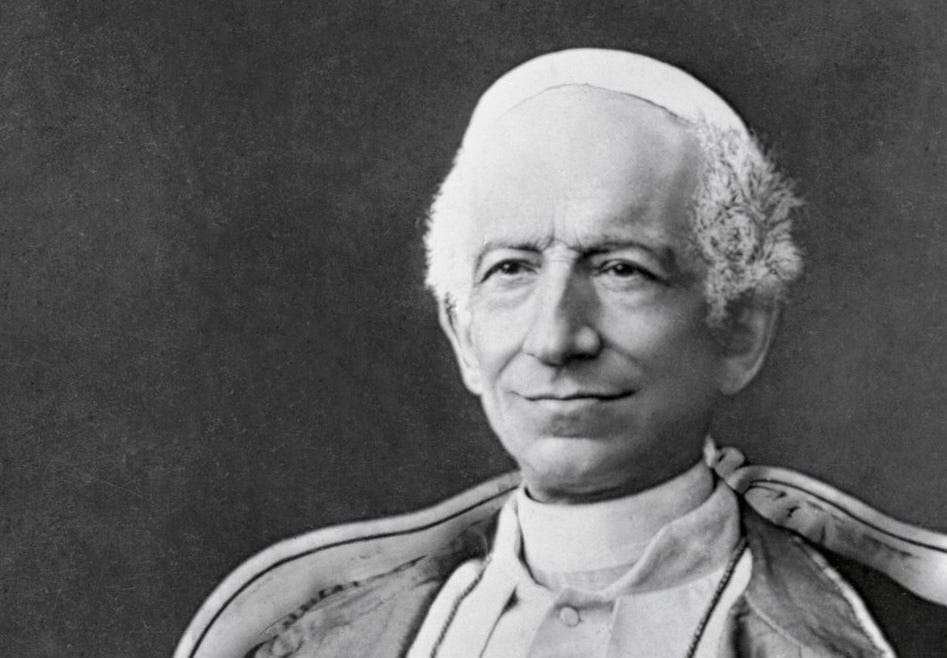When the Pope Became an Influencer
Pope Leo XIII’s Mission to Reboot Catholicism (1878-1903)
In February 1878, 68-year-old Vincenzo Pecci became Pope Leo XIII. He could have mourned the Church’s fallen fortunes—or diagnosed the world’s ills and offered a remedy. Pope Leo chose the latter, and in his first encyclical Inscrutabili dei consilio ignited the Church’s first civic mission to world. It’s the same crossroads every leader faces: blame the past or build the future.
Emerging from the Ashes
Pope Leo XIII was not naïve. The Church was under attack from all sides. The emerging Italian state had waged war against the Church and won. The Papal States were lost.
In Germany, Iron Chancellor Otto von Bismarck created a Protestant nation through a ‘preventive war’ against Catholicism. Monasteries and seminaries were closed. Nuns, friars and monks had to flee. Episcopal seats remained empty. Elsewhere in Europe, the picture was not much better. Loyalty to the church was perceived as a threat to the nation.
Though the Pope was effectively a “prisoner” within the Vatican and public celebrations of his election were outlawed, the spirit of Rome would not be crushed. Instead, the people lit candles and placed them in their windows, a quiet act of defiance that refused to allow their joy to be extinguished. The first blessing for the city and the world, ‘urbi et orbi,’ was given from a balcony inside St. Peter’s Basilica, visible only to the faithful who had managed to enter the church in time.
Reclaiming the Church’s Voice
Pope Leo XIII did not accept the framing of the Church as the enemy of a free society. Instead, he pointed out that societies were suffering because the Church was not free. All the revolutions had not led to more just societies; on the contrary, conditions had worsened.
In his first encyclical, the Pope set out that when we tear down the foundational truths that bind a society, refuse any form of legitimate authority, and indulge in perpetual conflict, we open the door to lawlessness, ruthless violence, and the breakdown of moral order.
Furthermore, obsessed with fleeting pleasures and blind to anything beyond the material, we squander public resources, cloak treachery in false patriotism, and drive countless souls to despair or self-destruction.
Finally, this inward rot—unchecked cravings, contempt for law, and pervasive deceit—acts like a silent plague, ensuring that without a return to virtue and reason, fresh upheavals and final collapse become inevitable.
A New Vision and a Global Mission
Rather than sitting back and saying, “I told you so,” Pope Leo vowed to redouble the Church’s mission. This civic mission embodies justice, peace, and prosperity worldwide, which sparked one of the most sweeping papal reforms in history.
He reclaimed the Church’s voice in society, science, and politics by delving into archaeology and Biblical scholarship, expanding missionary work to every corner of the globe, addressing the plight of the working poor, and forging a global network of Catholic thought through new schools, universities, the telegraph, and the printed press.
By harnessing popular piety—pamphleteering his speeches, mass-producing portraits and medals, recording his voice, and even appearing on film—Leo transformed the papacy like a modern influencer, connecting with ordinary believers in a way no pope had before him.
Action Point: Lead from Where You Stand
What can we learn from Pope Leo XIII today? First: stop waiting for permission. Lead from where you stand. Identify one cause—justice for the poor, honest conversation on campus, or reaching souls online—and dive in. Study Church teaching like a warrior studies strategy, then use today’s platforms—social media, podcasts, campus groups—as your battlefield. Embrace discomfort, iterate quickly, be truthful and kind, and let your faith, tradition, and Catholic Social Teaching be your compass. In a world full of noise, be the steady voice that refuses to be ignored.
Picture: crop of Wikicommons




